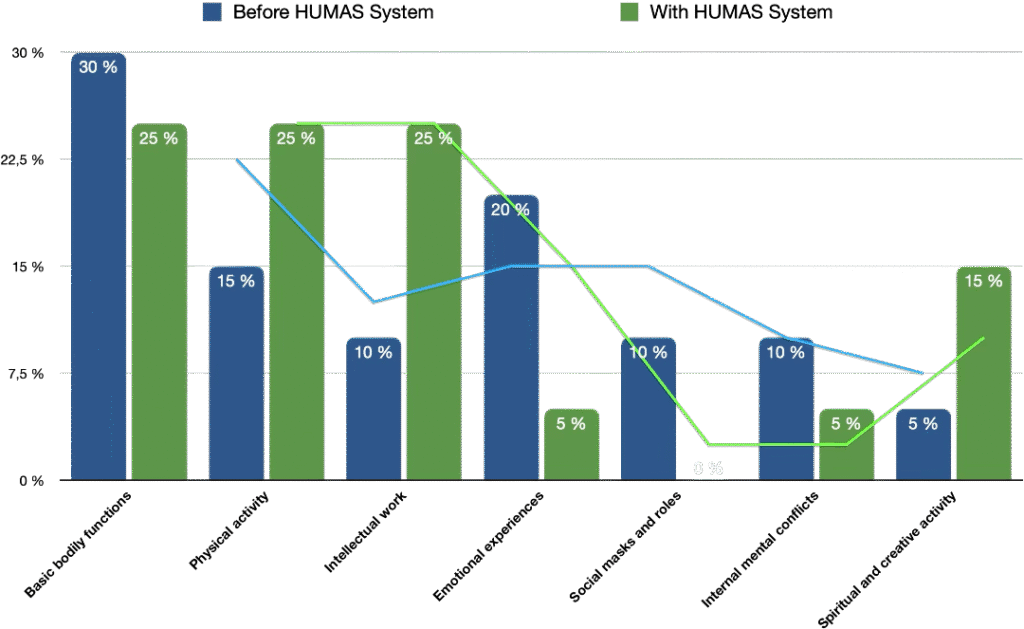1. Types of energy
HUMAS System recognizes three main types of human energy:
- Physical energy — actions, labor, movement, physical engagement
- Intellectual energy — knowledge, decision-making, creative and cognitive effort
- Emotional energy — empathy, care, support, relationships, motivation
2. Base unit
1 HUNIT (hu) = 1 kWh — the universal equivalent of personal energy in the system.
It reflects not just results, but the very act of invested effort.
3. Sources of energy accumulation
Your HUNIT grows through verified life actions, including:
- Education and skill development
- Work and professional contribution
- Projects and innovation
- Volunteering and social action
- Family and parenting
- Helping others (emotional, mentoring, physical support)
- Cultural and environmental initiatives
- Creative or spiritual expression
- Personal achievements with public impact


